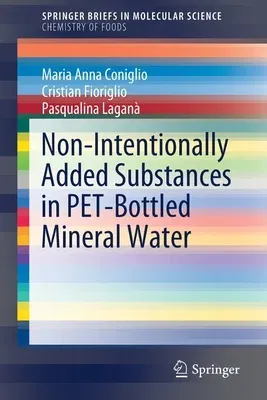This book discusses a major issue in the food contact materials
industry: non-intentionally added substances (NIAS), and their impact on
PET-bottled water. NIAS are chemical compounds that are present in food
contact materials but have not been added for technical reasons during
the production process, and consumers are usually unaware of their
presence. NIAS can include decomposition or degradation products,
impurities in the raw materials, unwanted by-products or contaminants
from recycling processes, and they pose a challenge for packaging
manufacturers.
In Europe, the EU Regulations No. 1935/2004 and 10/2011 set out,
respectively, the general principles of safety and inertness for all
packaging materials, and rules on the composition of plastic
food-contact materials. Among the plastics commonly used for bottled
water and other non-alcoholic refreshment beverages, polyethylene
terephthalate (PET) is the most favoured thanks to its chemical and
physical stability, its transparency, low weight and good recyclability.
Further, very few additives are used for its manufacture. Nonetheless,
due to the complex formulations of polymers, processes and storage, NIAS
can also be found in PET-bottled water, with potential cancerogenic or
toxic effects.
This book provides an overview of the European regulation of NIAS in
plastic packaging materials, offering insights into their chemical
composition in PET-bottled water. Lastly, it provides a useful
discussion on NIAS and their toxicity.

